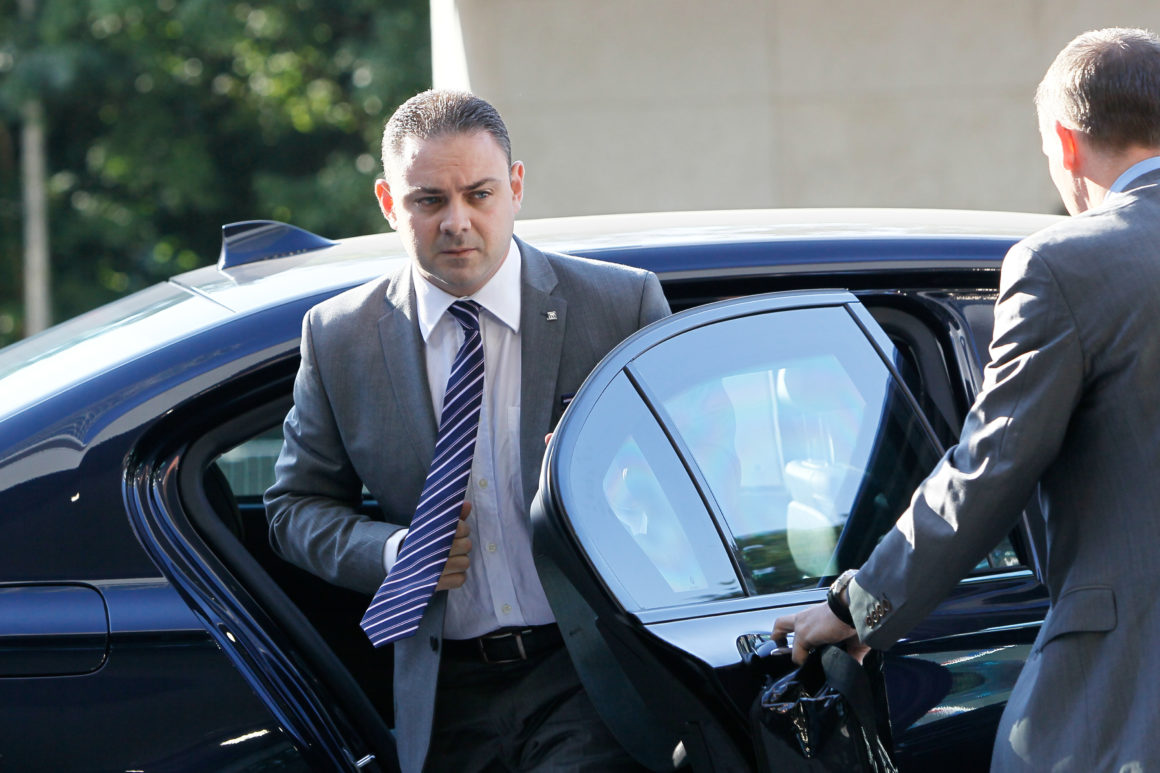
A series of scandals that have engulfed Malta’s Labour government in the past year are casting a shadow over the island’s first presidency of the Council of the EU.
The bloc’s smallest member country took on the role at the start of the year and is tasked with finalizing anti-money laundering legislation proposed in the aftermath of the Panama Papers scandal — in which a senior Maltese minister and the prime minister’s chief of staff were named.
MEPs — already smarting from the Maltese government’s decision to ignore their rejection of Leo Brincat as the country’s member of the European Court of Auditors in September — are set to grill Carmelo Abela, Malta’s minister for home affairs, and Owen Bonnici, the justice minister, during a committee hearing Thursday.
It is likely to be the only time that Maltese ministers responsible for law enforcement and the fight against corruption will appear publicly before MEPs.
In April, Konrad Mizzi, a close ally of Prime Minister Joseph Muscat, was revealed to have opened offshore companies and trusts in New Zealand and Panama through Mossack Fonseca, the law firm at the heart of the Panama Papers scandal, not long after the Labour Party won elections in 2013. The prime minister’s chief of staff, Keith Schembri, was also implicated in the leak.
The revelations triggered street protests at the time — Mizzi was the only sitting minister in the EU to be named in the papers — with the opposition Nationalist Party accusing the government of turning a blind eye to corruption.
Mizzi, the opposition alleges, took kickbacks from companies involved in privatization deals involving several hospitals and the island’s power station. The Maltese government has rejected the allegations.
Although Mizzi narrowly won a vote of no confidence in the Maltese parliament in May, he lost the energy and health portfolios, instead becoming “minister without portfolio in the office of the prime minister.”
Despite the name change, he appeared Wednesday morning at the Delimara power station with European Commission Vice President for Energy Union Maroš Šefčovič to talk about Malta’s energy plans. He is also expected to represent the Maltese government at the Council of the EU’s gathering of energy ministers during the presidency, having done so in December.
Opposition politicians claim that an additional report into the alleged kickbacks by Malta’s Financial Investigation Analysis Unit (FIAU) was buried by the police commissioner, who subsequently resigned due to health reasons.
“There continues to be a chief of staff and a top minister who still hold secret companies in Panama,” said Simon Busuttil, leader of the opposition Nationalists. “Nothing is happening.”
MEPs on the Panama Papers inquiry committee are set to scour Malta’s politics and financial sector in February for any wrongdoing.
One of the committee’s vice chairs, German MEP Fabio De Masi, challenged the Maltese government to prove its dedication toward tackling tax avoidance as part of its EU presidency, to make up for previous misdemeanors.
“Malta is hardly a credible broker in the Council when it comes to tax avoidance and money laundering,” said De Masi, a member of the United European Left group, who claims the government has pushed back against moves toward more transparency about company ownership.
A report published Wednesday by the Greens expressed concern Malta will avoid discussions on EU corporate tax reform and may even end up being on a blacklist of countries which don’t comply with international tax standards.
The office of the prime minister and the Maltese presidency both declined to comment.
Schengen troubles
MEPs are also expected to ask Abela and Bonnici on Thursday about an overhaul of the Schengen Information System — a tool used by EU countries’ law enforcement agencies to keep track of criminals — as well as reforms to the EU’s asylum and visa rules.
In August, Neville Gafà, a government official and childhood friend of the prime minister, was accused of selling medical visas to Libyan nationals.
The government was already under fire over a cash-for-passport scheme through which around 700 individuals had successfully obtained EU citizenship in exchange for a donation and a property investment on the island. Most of the applications came from former Soviet countries and the Middle East.
By September, the scheme — known as the Individual Investor Program — had earned the government over €310 million, according to Bonnici, the justice minister.
He also said that living in Malta was not the only way that an applicant could “form a genuine bond” with the country. In 2014, the Commission demanded Malta introduce a residency requirement, saying that without it, the scheme would violate international law.
“[The scheme] stains the image of Malta and should be reconsidered,” said center-right Dutch MEP Jeroen Lenaers, who intends to question Bonnici further Thursday.
A separate scheme marketed to Chinese nationals — the Malta Residency & Visa Program — is also now up and running, through which access to the Schengen area can be obtained in return for a property investment in Malta.
“If there’s anybody who shouldn’t be trusted on [reform of the Schengen system and anti-money laundering legislation], it’s ministers in this government,” said Ivan Grech Mintoff, leader of Alleanza Bidla, a small left-wing party.
Nike Air Force


